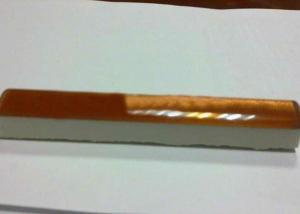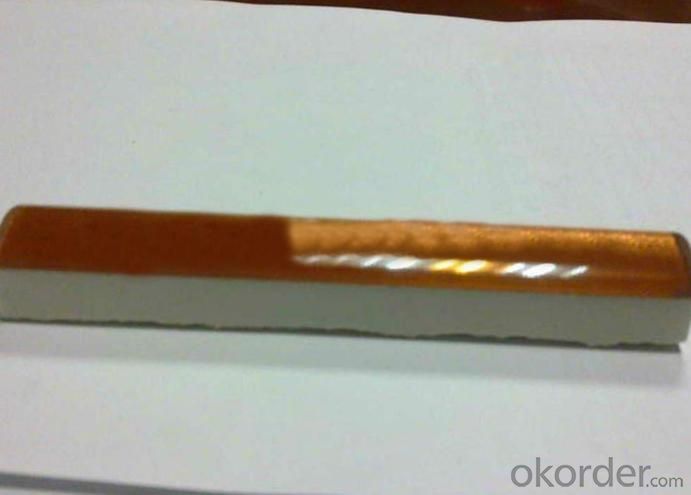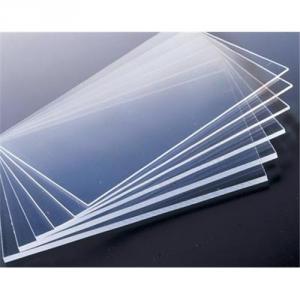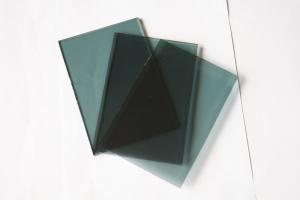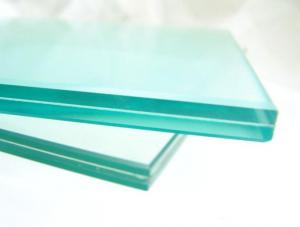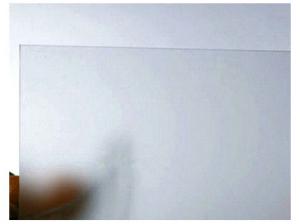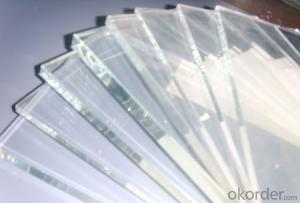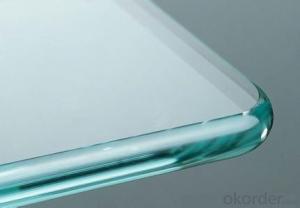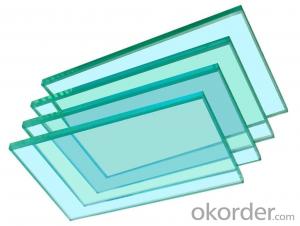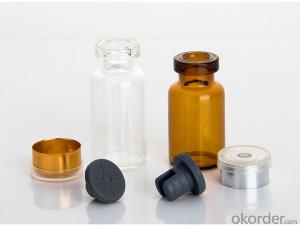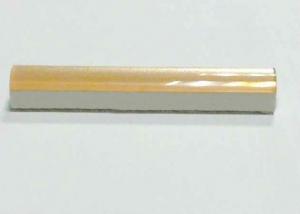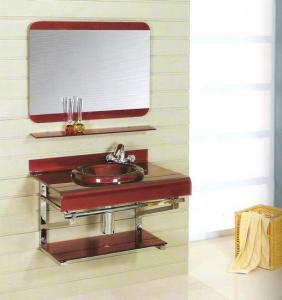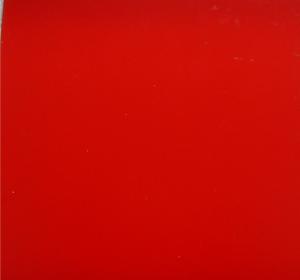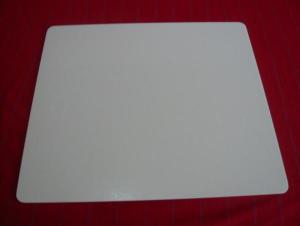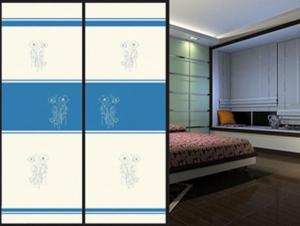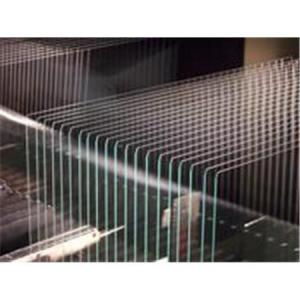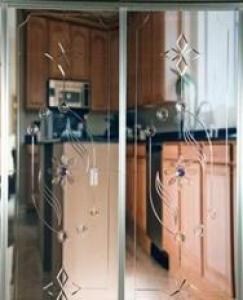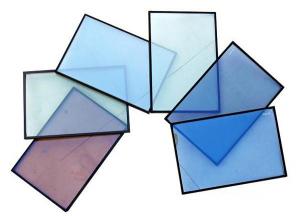Glass Strip/ Bornerline
- Loading Port:
- China Main Port
- Payment Terms:
- TT or LC
- Min Order Qty:
- 100 Meters m
- Supply Capability:
- 15000 Meters per Month m/month
OKorder Service Pledge
OKorder Financial Service
You Might Also Like
Glass strip,decorative border line,wall border line
size:17*1830*5mm,17*1650*5mm
Tailored size:17*2440*5mm,17*2200*5mm
Semi-rounded Glass strips: with porcelain tile on back
Application Usage of Glass Strip, Bornerline
Suitable for :
- To frame a wall/portrait, round-up edges, cover gaps, use as border line to embellish tiles
- Inlay to garnish columns, pillars, wall compartments
- Directly use to make lamp-house, partition, or mosaic
Product Specifications of Glass Strip, Bornerline
Standard Size: 17x600/17x900mm
Thickness: 12/14mm thick
Usage: Matching with 10-12 thick procelain tiles, it can be adhibited by cement.
- Q: How do you make the glass, please? What is the raw material?
- You can melt the sand and then try to remove the magazine and turn it into glass.
- Q: Chemical materials and additives needed for the production of glass
- 1. Blending of raw materials. The main ingredients of float glass are: 73% of silica, 13% of sodium carbonate, 9% of calcium oxide and 4% of magnesium. The ingredients are mixed in proportion, followed by the addition of small pieces of recycled glass.2. Melting of raw materials. The prepared material passes through a mixing bin and then goes into a kiln with 5 chambers and is heated at about 1550 degrees centigrade to become a molten glass. 3. Glass forming. Molten glass flows into a tin bath and floats over molten molten tin, at a temperature of about 1000 degrees celsius. The molten glass on the tin solution forms a glass band of 3.66 meters wide and a thickness of 3mm to 19mm. Because the glass and the tin are very different in viscosity, the molten glass at the top does not mix with the molten tin below, and forms very smooth contact surfaces.4. Cooling of molten glass. When the glass band leaves the bath, the temperature is about 600 degrees Celsius, then it enters the annealing chamber or the continuous cooling kiln, and the temperature of the glass is gradually reduced to 50 degrees celsius. Thus, the glass produced by the Xu cooling method is also called annealed glass. 5, cutting and storage. After the cold, the glass passes through several stages of quality inspection, then cut into different sizes for packaging, storage, storage or transportation.Quartz sand is a hard, abrasion resistant and stable chemical silicate mineral. Its main mineral composition is SiO2, the color of quartz sandFor the white, colorless or translucent, 7 hardness, brittle cleavage, conchatus fracture, oil sheen, density 2.65, bulk density (1-2.0 = 1.6), 20-200 was 1.5, the chemical, thermal and mechanical properties have obvious anisotropy, insoluble in acid, slightly soluble in KOH solution, the melting point of 1750 DEG C.
- Q: Glass fiber raw material price increases, the impact on the glass fiber industry?
- A group of small and medium enterprises will face great pressure, especially the focus will be on reducing costs and expanding production, often ignoring product quality and marketing strategy, in the market competition in a disadvantageous position.
- Q: Do solar panels use toughened glass, or are some high light transmitting materials good?
- Ultra white glass raw materials imported or made of iron high transmittance (transmission rate of up to 92%), through tempering (heating quenching), so that the strength of the glass increased 3--5 times, broken glass debris particle degree of safety, no harm to human body. The thickness of 2MM, 3MM, 3.2MM 4MM, etc..
- Q: List and characteristics of chimney glass flake cement
- Coatings containing glass flakes are much harder than epoxy or polyester resin without glass flakes, and therefore have higher surface abrasion resistance.
- Q: Who can tell me the raw material and function of the flashy glass?
- The roll of the roll is rotated, and the glass belt is pulled out of the tin groove into the annealing furnace. After annealing and cutting, the flat glass product is obtained.
- Q: What raw materials are used for glass fiber reinforced plastics? Where can I buy them?
- Glass fiber reinforced plastic is not a steel, but a composite material. Glass fiber reinforced plastic products are widely used. Most of the facilities of yachts, automobiles, water storage tanks and highways are made of glass fiber reinforced plastic products.
- Q: How do you pack something into (Qian Jin) plexiglass?
- The organic glass is divided into two layers to seal the flat object and then polish it.
- Q: What are the construction principles and raw materials of tempered glass?
- Tempered glass is the two processing product of flat glass. The processing of toughened glass can be divided into physical toughening method and chemical toughening method. Physical toughened glass is also called tempered tempered glass. It is the ordinary flat glass in heating furnace heated to the softening temperature close to the glass (600 DEG C), the internal stress of the self deformation is eliminated, and then removed from the glass furnace, with long nozzle high pressure cold air blowing glass on both sides, the rapid and uniform cooling to room temperature, well tempered glass can be made. This kind of glass in the internal and external tension compression stress state, once the local damage occurs, the stress release, the glass is broken into small pieces, these small pieces no sharp edges, not easy to hurt. In the production of tempered glass, the most influential factor on the quality of the product is how to make the glass form a larger and uniform internal stress. But the greatest impact on yield is how to prevent cracking and deformation.
- Q: What's the connection between tempered glass and float glass?
- Tempered glass will float glass cutting, grinding, drilling, backward tempering furnace heating to glass softening point, rapid and uniform cooling, change the compressive stress of glass, a mechanical properties of good glass products
1. Manufacturer Overview
| Location | Guangdong,China |
| Year Established | 2002 |
| Annual Output Value | US$5 Million - US$10 Million |
| Main Markets | |
| Company Certifications | ISO 9001:2000;ISO 14001:2004 |
2. Manufacturer Certificates
| a) Certification Name | |
| Range | |
| Reference | |
| Validity Period |
3. Manufacturer Capability
| a) Trade Capacity | |
| Nearest Port | shen zhen,guang zhou |
| Export Percentage | 41% - 50% |
| No.of Employees in Trade Department | 6-10 People |
| Language Spoken: | English, Chinese |
| b) Factory Information | |
| Factory Size: | 3,000-5,000 square meters |
| No. of Production Lines | 3 |
| Contract Manufacturing | OEM Service Offered Buyer Label Offered |
| Product Price Range | High and/or Average |
Send your message to us
Glass Strip/ Bornerline
- Loading Port:
- China Main Port
- Payment Terms:
- TT or LC
- Min Order Qty:
- 100 Meters m
- Supply Capability:
- 15000 Meters per Month m/month
OKorder Service Pledge
OKorder Financial Service
Similar products
Hot products
Hot Searches
